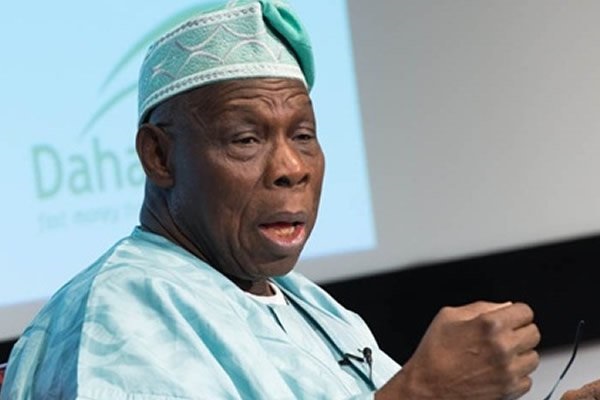- Former President Obasanjo urges National Assembly to pass legislation aiding individuals with kidney disease and combating organ harvesting
- Obasanjo stresses the urgent need for preventive measures, dialysis services, and transplantation support to address the rising kidney disease crisis
Former Nigerian President Olusegun Obasanjo has urged the National Assembly to expedite the passage of new legislation aimed at aiding individuals with kidney disease and addressing the alarming rise of organ harvesting and trafficking within Nigeria.
Speaking at the 36th Annual General Meeting and Scientific Conference of the National Association of Nephrology, held at the main auditorium of the Olusegun Obasanjo Presidential Library in Abeokuta, Ogun State, Obasanjo underscored the pressing need for legislative action in combating this growing crisis.
Highlighting the gravity of the situation, Obasanjo emphasized that approximately 15 percent of adult Nigerians suffer from irreversible kidney failure, a condition that poses a significant threat to life if left untreated. Moreover, he noted that Africa bears a disproportionately high burden of kidney disease compared to other regions globally.
Identifying hypertension, diabetes, kidney infections, genetic factors, as well as the habitual use of unspecified herbal medications and analgesic abuse as primary causes of kidney disease, Obasanjo stressed the urgency of preventive measures and healthy lifestyle choices to mitigate the risk.
In cases where intervention is necessary, such as severe kidney failure, Obasanjo advocated for the availability of dialysis and transplantation services as essential treatment modalities. He emphasized the importance of investing in local production of dialysis consumables to reduce treatment costs and reliance on foreign healthcare services.
Furthermore, Obasanjo urged legislative support for initiatives aimed at enhancing access to dialysis and transplantation services, particularly for children, which not only improves health outcomes but also fosters trust in the government and stimulates local healthcare production and employment opportunities.
Addressing the emerging threat of organ trafficking, Obasanjo called upon relevant agencies to review existing laws governing organ donation, considering Nigeria’s unique cultural and societal context. He stressed the importance of upholding ethical standards and ensuring the protection of individuals from exploitation in the donation and transplantation process.
In conclusion, Obasanjo reiterated the critical role of legislation in safeguarding public health, preventing unnecessary deaths, and bolstering the nation’s healthcare infrastructure. He urged concerted efforts from government agencies and lawmakers to enact comprehensive legislation that addresses the multifaceted challenges posed by kidney disease and organ trafficking in Nigeria.
